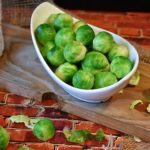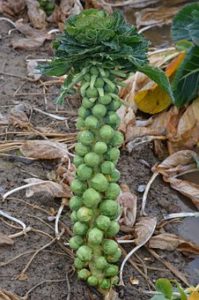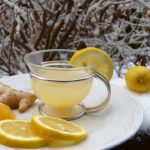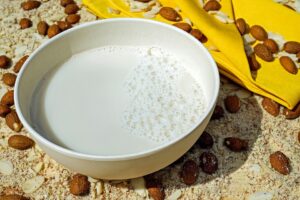
Surprising Seasonal Veg
 It’s the beginning of February; the weather is rather wet and miserable and you may be wondering what healthy and delicious meals you could cook to brighten your mood? Well, this is what I asked myself too. So, I started browsing through a book “Autumn and Winter Veg” by Guy Watson at Riverford organic farm, which along with a few people recently asking me the same question, inspired me to write a little something about .
It’s the beginning of February; the weather is rather wet and miserable and you may be wondering what healthy and delicious meals you could cook to brighten your mood? Well, this is what I asked myself too. So, I started browsing through a book “Autumn and Winter Veg” by Guy Watson at Riverford organic farm, which along with a few people recently asking me the same question, inspired me to write a little something about .
So here it is:
What vegetables are at their best, in the season from November to March
(in an alphabetical order):
Beetroot, broccoli, Brussels sprouts, cabbage, carrots, cauliflower, celeriac, Jerusalem artichoke, leeks, onions, parsnips, potatoes, purple sprouting broccoli, spring greens, squashes, swede, watercress and winter leaves.
Recently I read an article about the fantastic benefits of Brussels sprouts and I also learned about it in my nutritional course and because not many people know about it, I thought it may be useful to share the valuable information here with you.
So, what do you think about Brussels sprouts? A lot or not much? You would be surprised at how many people do not know that much about them, nor how to prepare them. Perhaps the only time they have them is as a side dish (unwelcome, often overcooked) at the Christmas dinner.
I personally did not know much about this veg either until recently when I learned about its great benefits. What really surprised me was just how nutritious it is. It inspired me to experiment with it in other ways and not just as an ingredient in a veg soup that my grandma used to cook for us.
So here are some of their fantastic health benefits – they may surprise you:
- Brussels sprouts are a very good source of manganese.
- Brussels sprouts are an important dietary source of many vitamin antioxidants, including vitamins C and A (in the form of beta-carotene).
- Brussels sprouts also contain a wide variety of antioxidant phytonutrients, including many antioxidant flavonoids.
- Brussels sprouts have been used to determine the potential impact of cruciferous vegetables on thyroid function.
- Brussels sprouts are now known to top the list of commonly eaten cruciferous vegetables containing cancer-protective substances.
- Brussels sprouts may have unique health benefits in DNA protection.
- Brussels sprouts can provide you with some special cholesterol-lowering benefits.
- The body’s detox system requires ample supplies of sulfur to work effectively, and Brussels sprouts are rich in sulfur-containing nutrients. Sulfur is connected with both the smell and taste of Brussels sprouts, and too much sulfur aroma is often associated with overcooking of this vegetable. So, steaming is preferable. 🙂
- There is evidence that the DNA in our cells is protected by naturally occurring substances in Brussels sprouts, and since many environmental toxins can trigger unwanted change in our DNA, Brussels sprouts can help prevent these toxin-triggered DNA changes.
- Brussels sprouts can help us avoid chronic, excessive inflammation through a variety of nutrient benefits.
- Glucosinolates found in Brussels sprouts help to regulate the body’s inflammatory/anti-inflammatory system and prevent unwanted inflammation.
- A second important anti-inflammatory nutrient found in Brussels sprouts is vitamin K. Vitamin K is a direct regulator of inflammatory responses, and we need optimal intake of this vitamin in order to avoid chronic, excessive inflammation.
- 100 calories’ worth of Brussels sprouts (about 1.5 cups) provide about 480 milligrams of the most basic omega-3 fatty acid (called alpha-linolenic acid, or ALA). Omega-3 fatty acids are the building blocks for the one of the body’s most effective families of anti-inflammatory messaging molecules.
- And the list goes on…
Source: PubMed (the health research database at the National Library of Medicine in Washington, D.C.)
Do you know where Brussels sprouts come from originally?
While the origins of Brussels sprouts are unknown, the first mention of them can be traced to the late 16th century. They are thought to be native to Belgium, specifically to a region near its capital, Brussels, after which they are named. They remained a local crop in this area until their use spread across Europe during World War I. Brussels sprouts are now cultivated throughout Europe and the United States. In the U.S., almost all Brussels sprouts are grown in California.
Buying and storing Brussels sprouts
Good quality Brussels sprouts are firm, compact, and vivid green. They should be free of yellowed or wilted leaves and should not be puffy or soft in texture. Avoid those that have perforations in their leaves as this may indicate that they have aphids residing within.
Sprouts on the stalk will keep somewhere cool for a couple of weeks. Off the stalk, they are still good for a week or so. When sold individually, choose those of equal size to ensure that they will cook evenly. Brussels sprouts are available year-round, but their peak growing period is from autumn until early spring.
Cooking Brussels sprouts
Whether you boil, stir-fry or roast them, the main hazard with Brussels sprouts is overcooking them – they will become a soggy, sulphurous mush with distinctive aroma. Try to avoid this pitfall and you have a winter veg that is versatile, delectable and filled with folic acid. When boiling, they are done when just tender to the tip of a sharp knife, usually less than 5 minutes! I personally prefer steaming them. They are done just in a couple of minutes as they are nice green and the texture is crunchy, not soggy. The other cooking method I use is stir-frying with some garlic, fresh root ginger and coconut oil as it is or added along with other veg such as carrots, onion, cauliflower or green peas.
Next week I will share a recipe or two. 😉
What are your thoughts about this vegetable? Have I managed to persuade you to give them another try? Are you going to include them in your meals from now on or have you been doing so already? If so, please share your recipes with me – I’d love to see what you make with them. 🙂

 Previous Post
Previous Post Next Post
Next Post


